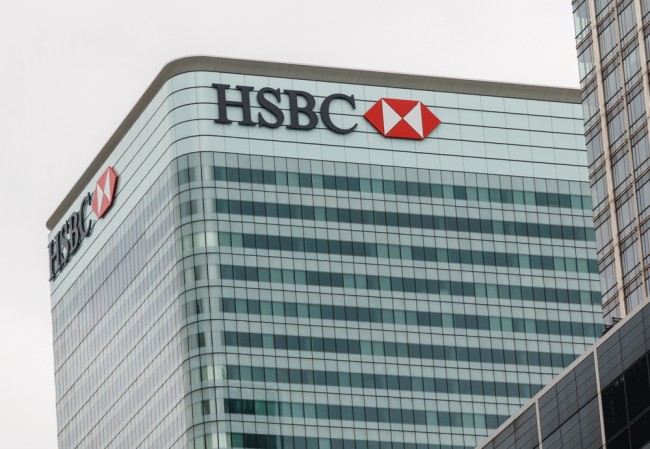A US judge has ordered the publication of a secret report detailing HSBC’s attempt to crack down on money-laundering, in a stunning victory for a disgruntled customer, reports This is Money.
Both the bank and the US government have fought to keep the findings under lock and key.
But a federal judge has ruled the public has a right to see the 250-page document compiled by an independent monitor who was placed inside the bank.
The judge cited the First Amendment of America’s constitution which protects free speech and freedom of the press.
This extraordinary twist came about after a legal spat HSBC had with a customer in America. Hubert Dean Moore Jr, a 52-year-old chemist from a suburb of Philadelphia, had demanded to see the money-laundering report after HSBC sold his mortgage debt to another bank without telling him.
In November, Moore urged the judge to release the report: HSBC and the US government had resisted. Last month, the case was contested in court. Moore represented himself against HSBC’s lawyers.
The verdict was only revealed this week, when Judge John Gleeson said: ‘I find that the report is a judicial record, and that the public has a First Amendment right to see the report.’
The order to ‘unseal’ the findings of the external monitor – former prosecutor Michael Cherkasky – could heap fresh embarrassment on HSBC, which has been fighting to restore its reputation.
The judge’s ruling may also alarm other scandal-hit banks – including Standard Chartered – which have struck deals with the US government to keep such reports private.
The biggest fear for both HSBC and Standard Chartered is that they could lose their licence to trade in America.
Cherkasky was hired by US lawmakers to ensure the bank had cleaned up its act. It was a condition of the High Street giant’s £1.1billion money-laundering settlement with US regulators in 2012 when it was accused of allowing billions of dollars for Mexican drugs cartels and terrorists to pass through it.
The bank’s systems were so slack that US lawmakers memorably described it as the ‘bank of choice’ for drug gangs and criminals.
HSBC signed a ‘deferred prosecution agreement’ with prosecutors in which criminal charges would be dropped after five years as long as it did not repeat these failings or violate any other laws.
As part of the plea bargain, the monitor’s report was meant to be kept secret – a decision backed by the US government.
The judge dismissed arguments that publishing the document would undermine the US Department of Justice’s ability to assess whether HSBC has complied with the terms of the deferred prosecution agreement as nervous staff become less co-operative with the monitor.
Judge Gleeson also rejected claims that disclosing the monitor’s findings could give criminals a ‘roadmap’ to exploit weaknesses in HSBC.
Michael Mason-Mahon – an HSBC investor in London who has worked with Moore on his challenge – said: ‘This is a monumental victory for a courageous customer.’
HSBC has been given until February 12 to submit any redactions before the report is unsealed.
The US government has appealed for a 30-day extension.
The findings could be explosive: in June Federal prosecutors said HSBC was ‘under serious money-laundering and sanctions risk’ because it had not tightened up its controls to safeguard the flow of money.
Standard Chartered struck a similar deferred prosecution agreement with US lawmakers in 2012 when it received huge fines for violating sanctions against Iran and other states.
An HSBC spokesman said: ‘We regret that the court has decided to unseal the report and are taking steps to appeal the decision.’
Read more: http://www.thisismoney.co.uk/money/news/article-3432276/HSBC-told-reveal-dossier-secrets-judge-rules-favour-angry-customer-demanded-bank-s-internal-report-money-laundering.html#ixzz3zF2oer9p
Follow us: @MailOnline on Twitter | DailyMail on Facebook


